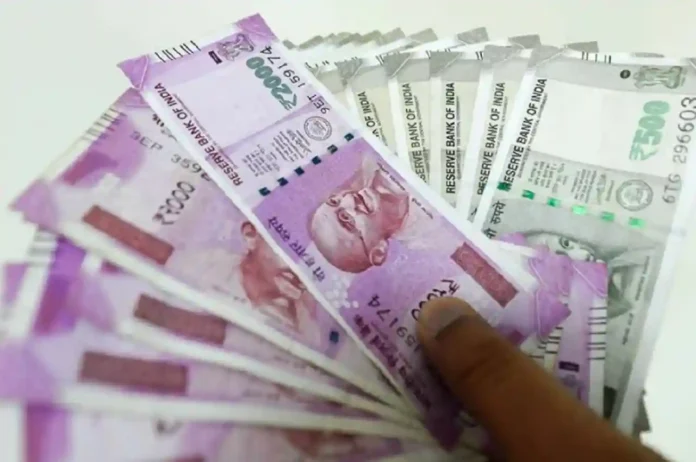7th Pay Commission : Government employees can get to hear good news soon. The government may soon give approval to increase the fitment factor. This can be discussed in the cabinet meeting to be held tomorrow.
If this is decided, then in July the employees can get the good news. The government has increased the DA from 31 percent to 34 percent, after which the expectations of an increase in the minimum basic wage have increased further. Union government employees’ unions have been demanding for a long time to increase the fitment factor from 2.57 times to 3.68 times, thereby increasing the minimum basic pay from Rs 18,000 to Rs 26,000. The government had earlier increased the entry level basic pay from Rs 7,000 per month to Rs 18,000 in the year 2017.
If the government announces an increase in the fitment factor of central employees, then their salary will increase. At present, the employees are getting salary on the basis of 2.57 percent under the fitment factor, which is increased to 3.68 percent, then the minimum wage of the employees will increase by Rs 8,000. This means that the minimum wage of central government employees will be increased from Rs 18,000 to Rs 26,000. At present the minimum basic pay is Rs 18,000.
Salary will increase so much
If the fitment factor is increased to 3.68 per cent, the basic pay of the employees will be Rs 26,000. Right now if your minimum salary is Rs 18,000, you will get Rs 46,260 (18,000 X 2.57 = 46,260) as per 2.57 fitment factor excluding allowances. Now if the fitment factor is 3.68 then your salary will be Rs 95,680 (26000X3.68 = 95,680).
Earlier this was the basic salary
The Union Cabinet had in June 2017 approved the recommendations of the Seventh Pay Commission with 34 amendments. The entry level basic salary was increased from Rs 7,000 per month to Rs 18,000, while the highest level i.e. secretary was increased from Rs 90,000 to Rs 2.5 lakh. The starting salary for Class 1 officers was Rs 56,100.
Now this allowance is going to increase
The Modi government has increased the Dearness Allowance (DA) of central government employees. The government has increased the DA by 3 percent to 34 percent. Now according to media reports, the central government can increase the house rent allowance and other allowances of the employees.
The last hike in HRA was seen in July last year. Then the DA had crossed the 25 per cent mark. At that time the government had increased the DA to 28 percent. Now that the government has increased DA, then HRA can also be amended. If the HRA is increased, then there can be a big increase in the salary of government employees.
This is how HRA is determined
HRA for government employees is determined by the category of the city in which they work. These three categories are X, Y and Z. Class X employees are getting HRA at the rate of 27% of their basic pay. Y category gets HRA at the rate of 18 to 20 percent. Whereas Z category gets HRA at the rate of 9 to 10 percent. This rate varies by region and city.
How much will the HRA increase?
According to media reports, the HRA of government employees may soon increase by 3 percent. Employees in X category cities may see a 3% increase in their HRA, while Y category cities may see a 2% increase in their allowances. Apart from this, the HRA of employees in Z category cities can also increase by 1 percent. That is, the HRA of government employees will increase from 27 per cent to 30 per cent in the best case scenario.


